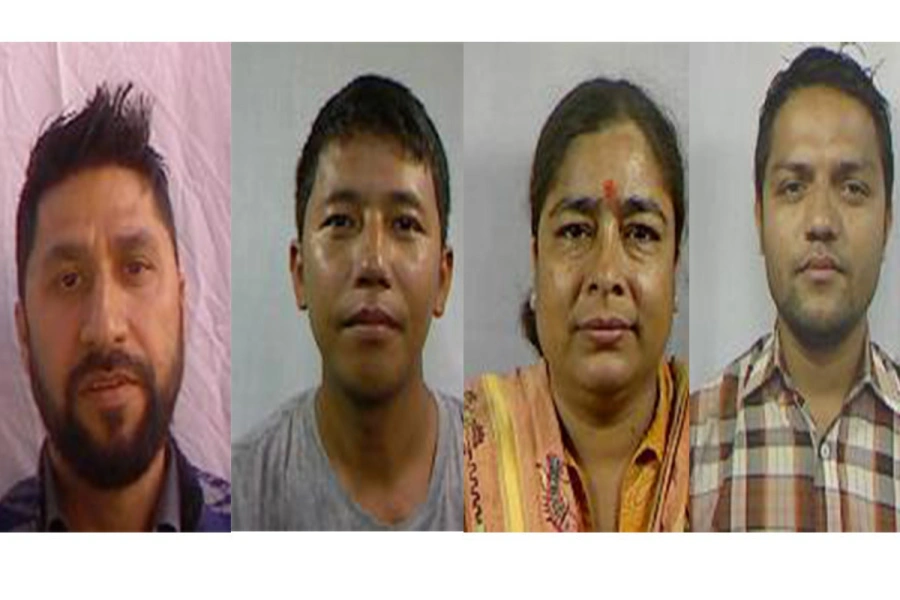The government presented the policy and program for the Fiscal Year (FY) 2024/25 before the Federal Parliament on Tuesday. According to the tradition of presenting such policies and programs by the head of state, President Ram Chandra Paudel read out the policy and program before the joint meeting of both houses of the federal parliament. The policy and program are the announcement in advance containing the main plans to be undertaken by the government in the coming fiscal year. This is the reason why the government's policies and programs have become a matter of interest for all Nepalis. In the policy and program presented in the federal parliament, it has been announced that a special package will be brought to operate Pokhara and Bhairahawa airports, while it also mentions that the Takura (i.e., mountain) tourist destination will be developed in coordination with the private sector. Similarly, there are a number of plans such as providing electricity concessions to industries related to agriculture, building water recharge centers in the Kathmandu Valley, constructing underpasses and overpasses on ring roads, providing land to five million landless people, and building an internet and data exchange platform included in the policy and program.
Furthermore, the policy and program mention that shipping and surveying services will be provided online at the local level, establishing a specialized body for cooperative regulation, providing employment to 5,000 people with the information technology decade declaration, Nepal establishing its satellite, providing irrigation facilities to an additional 15,500 hectares of land, and assisting 1,000 young people in starting businesses. The policy and program of the government, read by President Paudel, also include announcements such as giving loans, increasing electricity capacity to 4,500 megawatts next year, commencing petroleum exploration in Dailekh in the next fiscal year, and initiating the construction of Budhi Gandaki. Additionally, this policy and program include many plans like opening food processing industries, rescheduling and restructuring loans of microfinance borrowers, providing free insurance, electric stoves, and tube wells to the poor, canceling poorly executed government projects, declaring a decade of investment in agriculture, and addressing other issues covered by this policy and program in each province. Infrastructure for one thousand cows and buffaloes will be built, wood imports will be replaced, waterways will be developed to provide Nepal access to the sea, and terminal buildings will be constructed for the operation of ships in Narayani and Koshi.
NPI and KUSOM Policy Lab launch Policy Leadership Program

Policies and programs are necessary for any country to move forward in an orderly manner. In this sense, there is no need to criticize the policies and programs that have been submitted now. But, like some of the policies and programs of the past, this one is definitely more ambitious. This policy and program also reveal the compulsion to remove provisions that must be fulfilled but are retained merely to please a certain class of the community, such as the distribution of land ownership to five lakh landless people in the coming fiscal year. Earlier policies and programs also promised to distribute land to the landless, but the fulfillment was reduced to a very small percentage. Similarly, the issue of wood import substitution was also limited to papers. Although the policy and program in Nepal are aimed at eliminating poverty and creating jobs, necessary work and the basis for its completion do not seem to be mentioned anywhere. So, declarations without concrete plans are merely empty promises. In such matters, policies and programs do not seem to have learned lessons from the past. Issues such as operating ships and running trains are vivid examples of this, as the inability to operate even a single commercial train regularly in the country casts doubt on other related claims.
For some reasons, such as the use of 'armed struggle' in place of the term 'people's war', and the mention of 'Prosperous Nepal: Happy Nepali' promoted by the CPN-UML as a national aspiration, this policy and program have been interpreted as indicating the dominance of the largest party of the coalition, the UML. Apart from that, it is easy to understand that the issue of operating ship service is given priority and plans like providing land to the landless are also prioritized under its influence. In this way, although Maoists, Rastriya Swatantra, CPN (Unified Socialist), and Janata Samajwadi Party are involved in the current ruling coalition, accusations have been heard from one section that their agenda is overshadowed by the UML. It also mentions a number of good plans such as the Prime Minister's Daughter Self-reliant Program, providing monthly salaries to teachers, branding, and exporting domestic liquor to the world market, achieving self-sufficiency in fruits within five years and in livestock and fish within two years, constructing 10 reservoirs in the Chure region and inner Madhesh. Additionally, the program will cover the issue of free orientation training before foreign employment. These are the provisions that have raised hopes among all Nepalis, but they are not in a position to be completely confident because Nepalis have not forgotten the old disease of making declarations but not implementing them promptly.
Some of the issues included in the policy and program are also seen as incomprehensible to the general public. For example, it is claimed that the government has increased hope and confidence in the implementation of corruption control, good governance, and austerity. Not only that, the government has also claimed that it has succeeded in dispelling the illusion that holding a high office will exempt one from legal accountability. The claim is laughable in itself because it is reluctant to investigate the charges of fraud through cooperatives labeled against the Minister for Home Affairs. Additionally, the claim that the economy has improved due to coordination of finance and monetary policies is also not credible. Another question arises as to how to believe such a claim when the revenue cannot cover the day-to-day administration expenses of the country. Some optimistic programs, such as selecting only projects with guaranteed returns, not allowing teachers and employees to be members of political parties, providing living allowances to athletes, and expanding the scope of social security programs, are also included in it. In this way, this policy and program are also filled with promising words and attractive sentences like the previous ones.
But what needs to be understood is that announcements, words, and sentences alone are not enough; the strong will of the government is necessary to make these instruments effective. Obtaining such a will in today's context is challenging. The first thing is that only the plan that can be executed in the policy and program and the resources and means should be announced. Even if the budget is less than what is needed, it will not have any effect. The lack of mature policies and programs on such issues was evident. Therefore, this policy and program have also become a mockery of the coalition government, reduced to a ritualistic regularity. In this situation, the most important thing for the government to do is to arrange the necessary budget for them by setting priorities based on which of the subjects included in the policy and program are more acceptable to the people. Otherwise, the pace of losing faith in so-called democratic governments will increase even more. The government must pay attention to this fact.





































